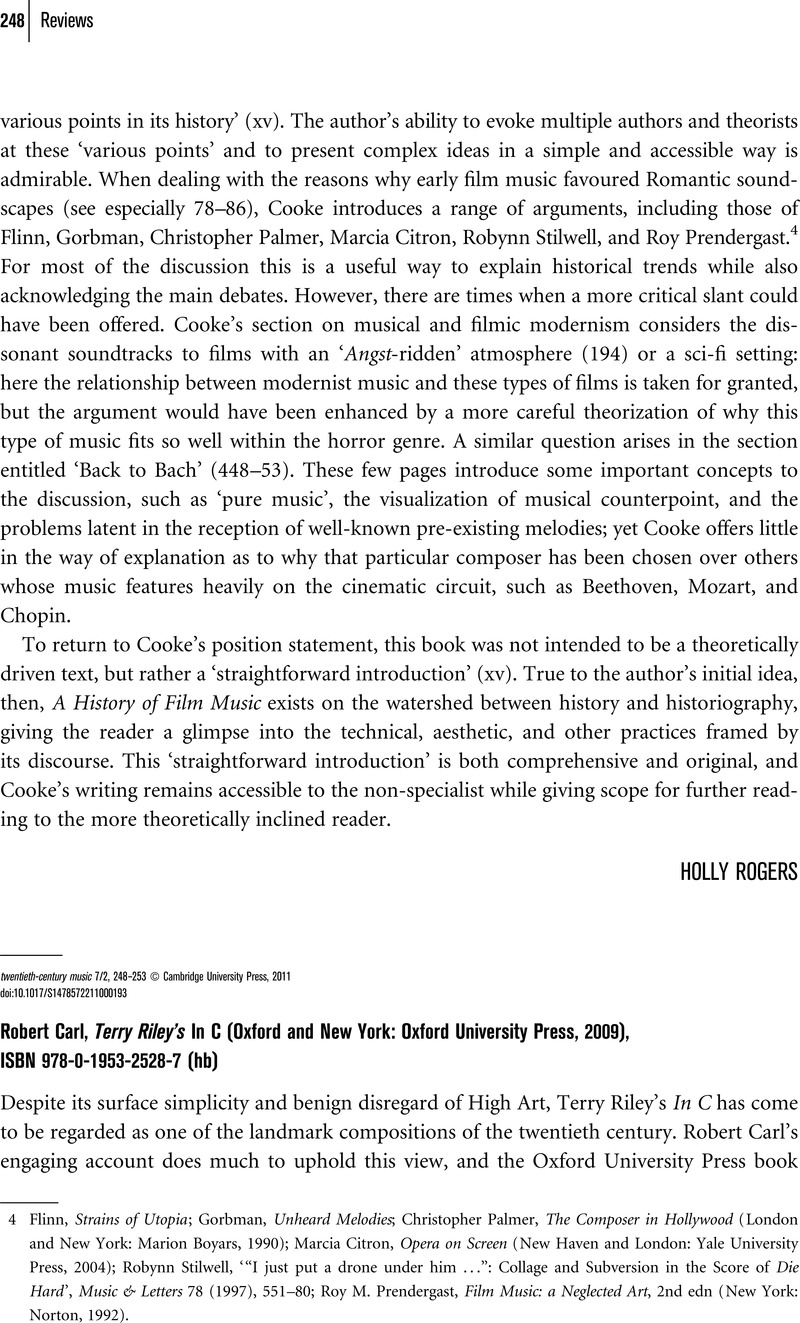No CrossRef data available.
Published online by Cambridge University Press: 29 November 2011

1 Potter, Keith, Four Musical Minimalists (Cambridge: Cambridge University Press, 2000), 109Google Scholar.
2 There is an even more glaring error later in the text, when Carl states that Riley recorded Dorian Reeds in his home studio ‘on November 5, 1996, giving its premiere in one of his loft concerts soon afterwards’ (76). Potter asserts that Dorian Reeds was probably composed, or ‘worked out’, as he describes it, ‘in 1965’ (Potter, Four Musical Minimalists, 127).
3 Potter, Four Musical Minimalists, 111.
4 Other anomalies appear elsewhere in Carl's analysis. He is correct to point out that the notes ‘C♯ and E♭ are never used [in the piece]’ (66) but neglects to mention that A♭ is also absent.
5 Morgan, Robert P., Twentieth-Century Music (New York: Norton, 1991), 426Google Scholar.
6 Reich, Steve, ‘Music as a Gradual Process’, in Writings on Music, 1965–2000, ed. Hiller, Paul (Oxford and New York: Oxford University Press, 2002), 34–6 (p. 35)Google Scholar.
7 Potter, Four Musical Minimalists, 114.
8 Richardson, John, Singing Archaeology: Philip Glass's Akhnaten (Hanover and London: Wesleyan University Press, 1999)Google Scholar; Adlington, Robert, Louis Andriessen: De Staat (Aldershot: Ashgate, 2004)Google Scholar.